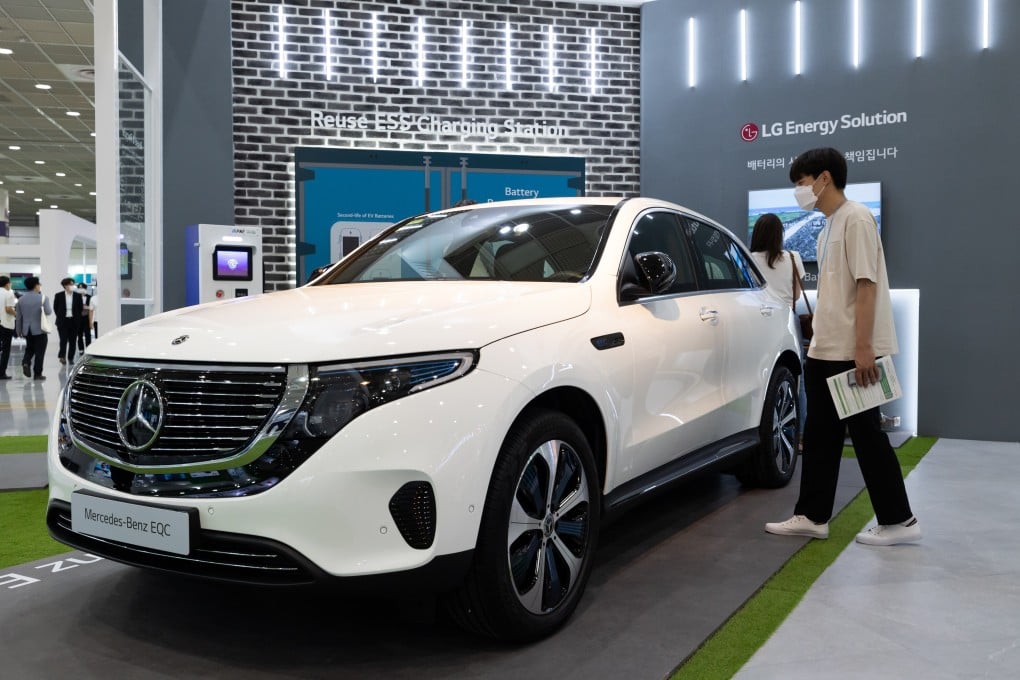Advertisement
Chip shortage restricts China’s car production, leaving showrooms empty, but local brands are faring better
- Car output fell 6.8 per cent in May to 2 million vehicles, but local brands with lower sales have better weathered the semiconductor shortage
- Wait times for certain car models have jumped from weeks to months
Reading Time:3 minutes
Why you can trust SCMP

The global chip shortage continues to disrupt supply in China’s car market, with no signs of relief, as output falls and dealers in some parts of the country struggle to fill showrooms.
The lack of semiconductors, which have become vital for increasingly smart cars, is affecting car plants around the world, forcing carmakers to halt production. The effect can be seen at car dealerships in China, where the push to adopt electric and hybrid cars, which China calls new energy vehicles (NEVs), has been upended by the chip shortage.
A Mercedes-Benz showroom in downtown Beijing, a huge exhibition space surrounded by high-rises and luxury shopping malls, used to be filled with the company’s new electric EQC cars, but it just had one single model when the South China Morning Post visited last week.
Advertisement
“Other exhibition cars were all picked and sold,” said the shop’s dealer surnamed Yu. “You are not going to get any Benz cars delivered in Beijing soon … the company has cut sales because of the chip shortage.”
When all the necessary parts are available, the all-electric SUV can be assembled in Beijing and delivered within 10 days, Yu said, but now it takes at least two months.
Advertisement
Advertisement
Select Voice
Choose your listening speed
Get through articles 2x faster
1.25x
250 WPM
Slow
Average
Fast
1.25x